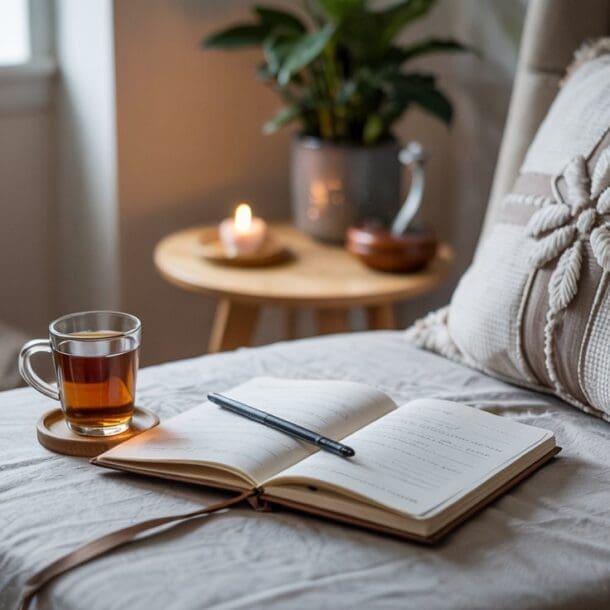
Please note: This website contains affiliate links. As an Amazon Associate, we earn from qualifying purchases at no additional cost to you.
Mental health isn’t just about avoiding breakdowns and meltdowns (though let’s be honest, we’ve all been there).
It’s about building small, daily habits that keep your mind feeling clear, calm, and a little less like a chaotic mess.
The good news? You don’t need to overhaul your entire life to feel better. Tiny changes can make a big difference. In fact, some of the best mental health boosters are free, easy, and take just a few minutes a day.
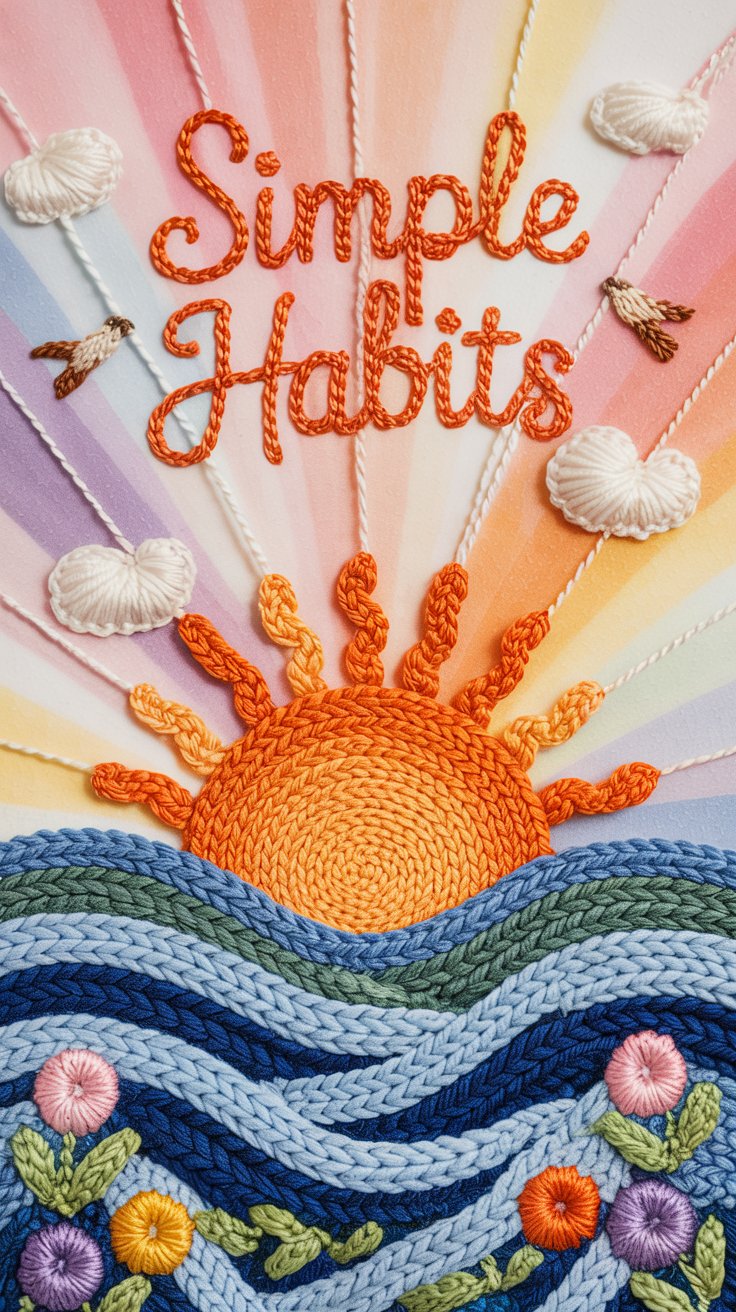
So if you’re feeling overwhelmed, anxious, or just stuck in a funk, here are 13 simple, realistic habits that can help improve your mental well-being—without adding more stress to your plate.
13 Simple Mental Health Habits That Actually Work
1. Start Your Morning Without Your Phone
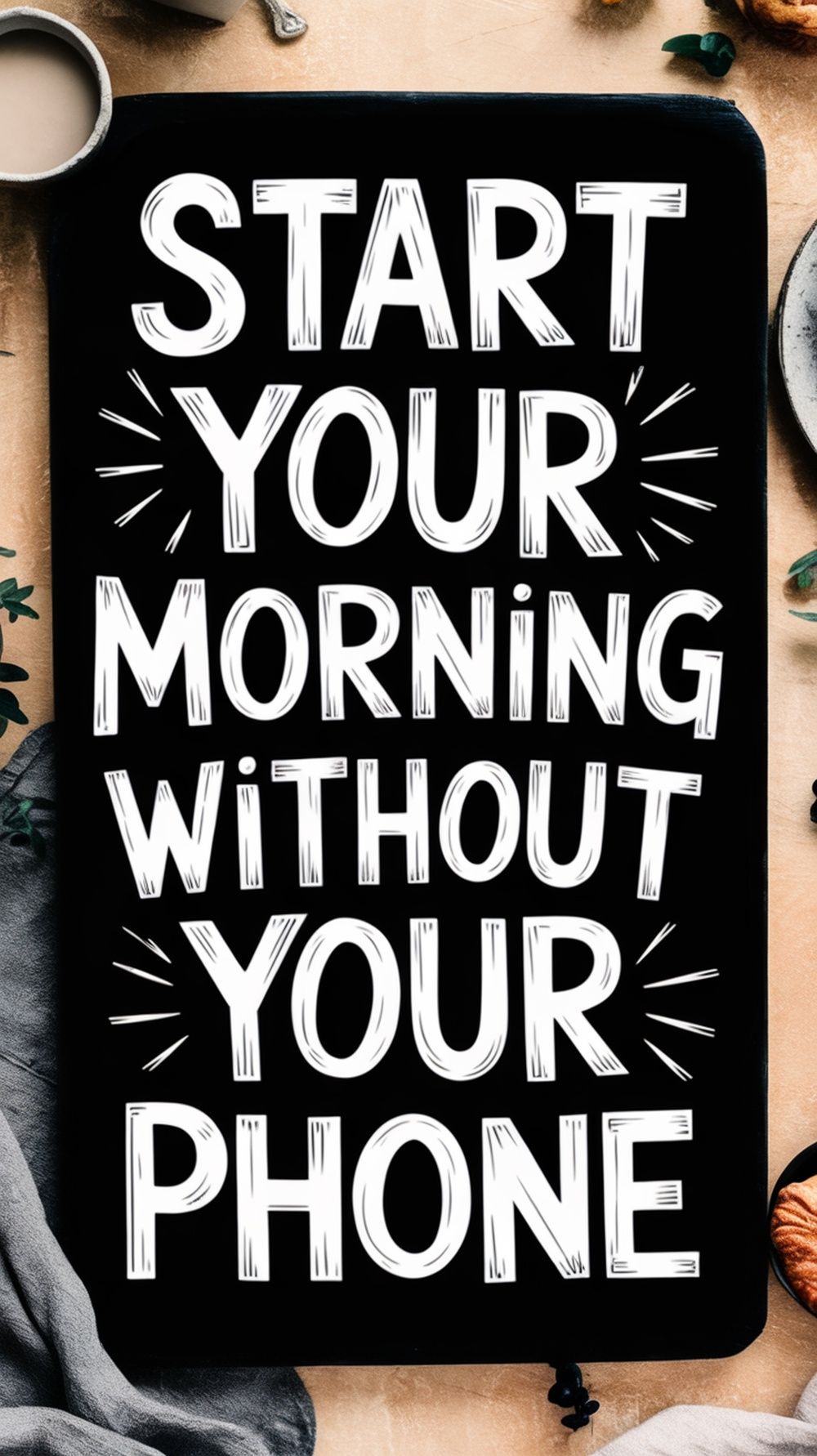
We’ve all done it—waking up, grabbing our phone, and immediately scrolling through emails, news, or social media drama before we’ve even had coffee. Not exactly a peaceful way to start the day.
Instead, try keeping your phone away for the first 30 minutes of your morning. Read a book, stretch, drink water—anything but doomscrolling. Your brain will thank you.
2. Drink Enough Water (Seriously, Just Try It)
Is dehydration secretly ruining your mood? Possibly. Even mild dehydration can make you feel tired, anxious, and mentally foggy.
I recently put this one to the test – not intentionally! – and went from about 80 to 100 ounces of water each day to less than 40. I was like a complete different person. Really foggy, light-headed and if you ask my friends and family, they would tell you I was a wee bit cranky too.
Make it easy for yourself:
- Keep a water bottle nearby.
- Set reminders if you always forget.
- Add lemon or fruit if plain water bores you.
- Add some electrolyte powder to your water (works wonders)
Pro tip: If you’re feeling cranky, drink a glass of water before assuming life is terrible. Sometimes it’s just dehydration talking.
3. Get Outside for at Least 10 Minutes a Day
Nature is free therapy. Sunlight, fresh air, and movement help reset your mood and reduce stress.
Even if you just step outside for a few minutes, take a walk, or sit on your porch, you’ll feel a difference. Plus, bonus vitamin D.
4. Move Your Body in a Way You Actually Enjoy
Forget the “no pain, no gain” mentality. Exercise doesn’t have to be miserable to be beneficial.
Dancing in your kitchen? Counts.
Yoga in your pajamas? Also counts.
Taking the stairs instead of the elevator? Yep, still counts.
Find movement that feels good instead of forcing yourself into workouts you hate.
5. Practice the ‘One-Minute Rule’
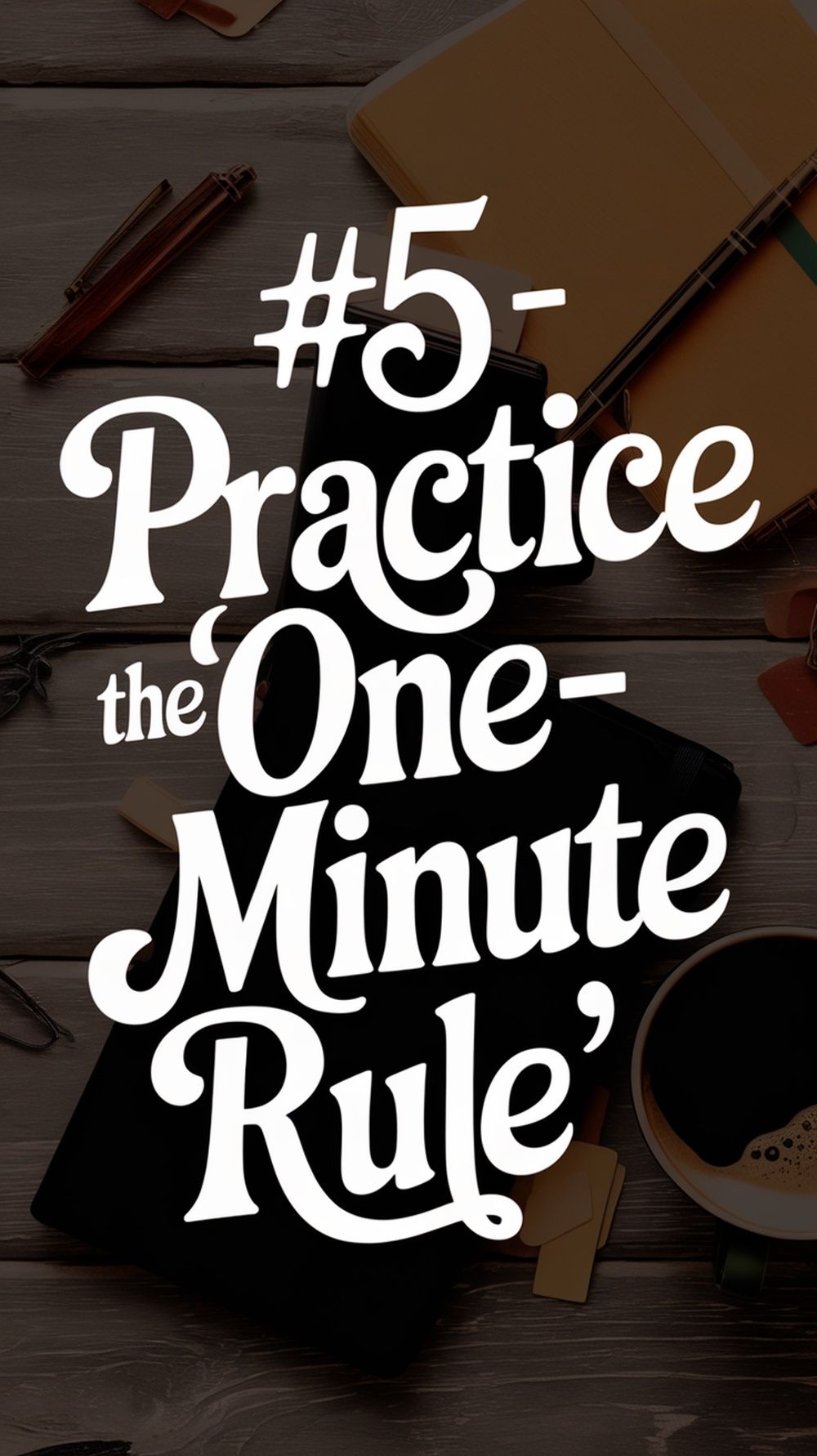
Ever feel overwhelmed by your to-do list and end up doing… absolutely nothing? The “One-Minute Rule” is a game-changer.
If something takes less than a minute—just do it.
- Make the bed.
- Reply to that quick text.
- Put the dish in the dishwasher instead of the sink (yes, I’m talking to you).
It prevents small tasks from piling up and helps your brain feel less cluttered.
6. Start Journaling (Even if It’s Just a Few Words)
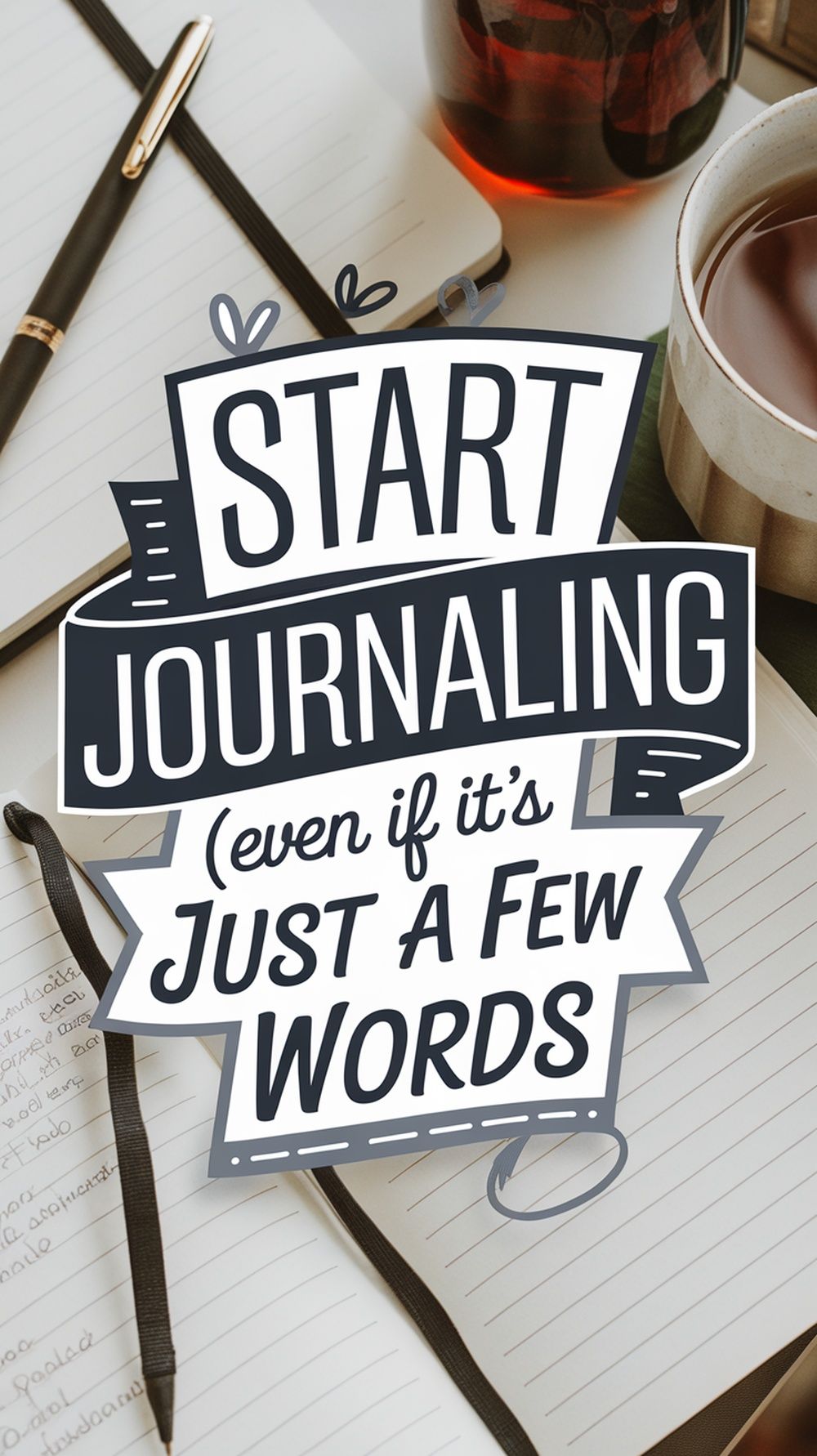
No, you don’t need to write pages of deep thoughts. Journaling can be as simple as jotting down one sentence about your day.
Some easy options:
- Gratitude journal: Write 3 things you’re grateful for.
- Brain dump: Get thoughts out of your head before bed.
- Daily check-in: “Today, I felt _____ because _____.”
It helps clear mental clutter and makes your thoughts feel more manageable.
PRO TIP: If you aren’t a long-winded writer, try getting a 5-year journal. There are just a few lines for each day so you don’t feel the pressure of a big blank page.
I bought one a few years ago and it’s now one of my favorite things to do each day. It’s also been a great way for me to keep track of my mental health. For example, I started to realize after a few years of journal entries that mid-January was a super challenging time for me mentally, so I make sure I’m prepared to tackle it head-on next year.
7. Take Breaks from Social Media
Social media is a wild place. One minute, you’re looking at cute puppies; the next, you’re spiraling over someone’s perfect vacation pics or reading apocalyptic news.
Give yourself breaks. Unfollow accounts that make you feel bad. Set app limits. Go a day without scrolling. Your mental health will improve instantly.
8. Try Deep Breathing Exercises
Breathing: we all do it, but most of us aren’t doing it well. When stressed, we take shallow, quick breaths—making anxiety worse.
Try box breathing (inhale for 4 seconds, hold for 4, exhale for 4, hold for 4) or belly breathing (breathe deeply into your stomach instead of your chest).
Sounds simple, but it works.
9. Prioritize Sleep Like It’s Your Job
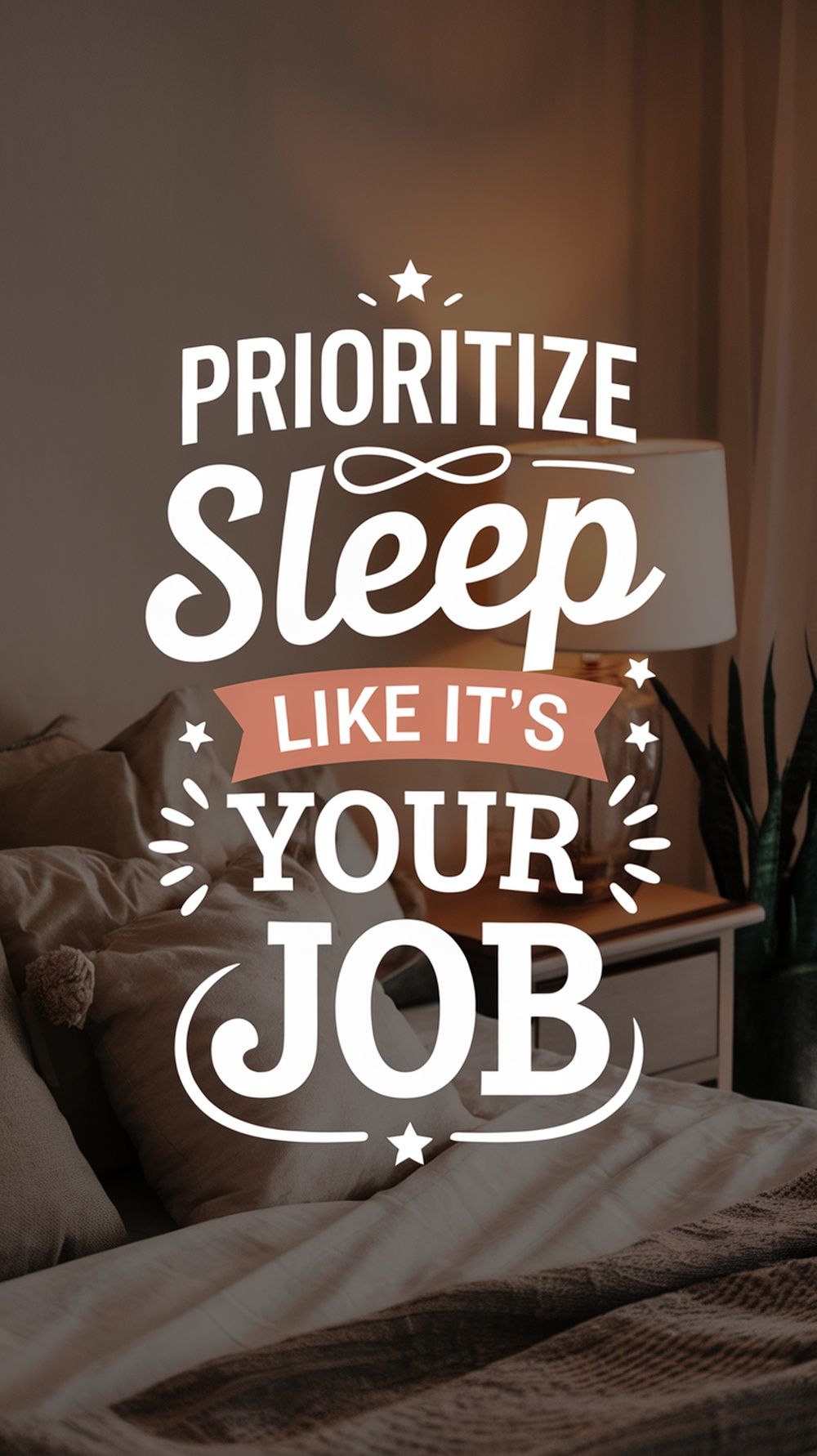
If you’re running on 4 hours of sleep and wondering why everything feels terrible, here’s your answer. Sleep is non-negotiable for mental health.
Quick fixes:
- No caffeine after 2 PM.
- Keep a bedtime routine.
- Put your phone on ‘Do Not Disturb’ mode.
More sleep = better mood, less anxiety, and fewer existential crises.
10. Say ‘No’ More Often
Not every invite, request, or favor needs a yes. Protecting your time and energy is self-care.
If saying no feels awkward, try:
- “I’d love to, but I can’t right now.”
- “Thanks for thinking of me, but I have too much on my plate.”
- “No, but let’s plan for another time!”
Setting boundaries isn’t rude—it’s necessary.
11. Listen to Music That Boosts Your Mood
Music is basically legal mood-altering medicine. Certain songs can literally change your brain chemistry.
Create playlists for different moods:
- Energizing (for mornings when coffee isn’t enough).
- Calm & Chill (for stressful days).
- Feel-Good Throwbacks (because 90s pop hits are an instant serotonin boost).
12. Hug Someone (Or at Least Cuddle a Pet)
Physical touch releases oxytocin, aka the “feel-good hormone.” If you have someone to hug, do it. If not, snuggling a pet, weighted blanket, or even yourself works too.
Seriously, science says hugs help with stress. Go get one.
13. Give Yourself Permission to Rest
You don’t have to be productive 24/7. Resting is productive, too.
Let yourself watch Netflix without guilt, take a nap, or have a lazy day. Your brain needs downtime just as much as your body does.
Final Thoughts
Taking care of your mental health doesn’t have to be complicated. Small habits—done consistently—can have a huge impact.
You don’t need to do all 13 at once. Just pick one or two to start with. Tiny steps add up, and your mental health is worth the effort.
Now go drink some water, take a deep breath, and give yourself a break—you’re doing better than you think.
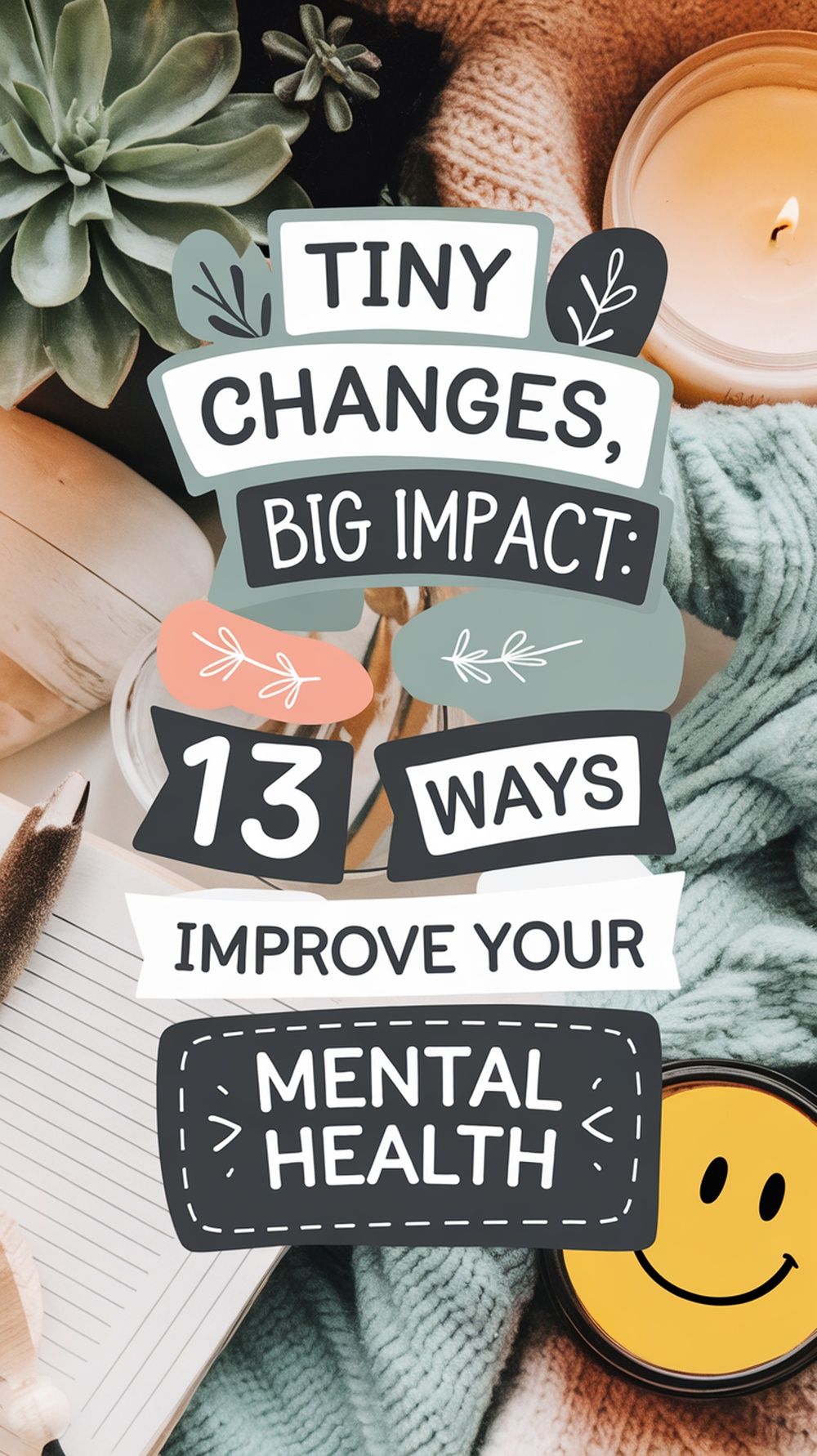
Please note: This website contains affiliate links. As an Amazon Associate, we earn from qualifying purchases at no additional cost to you.






